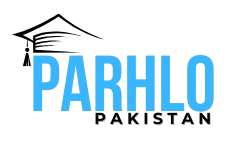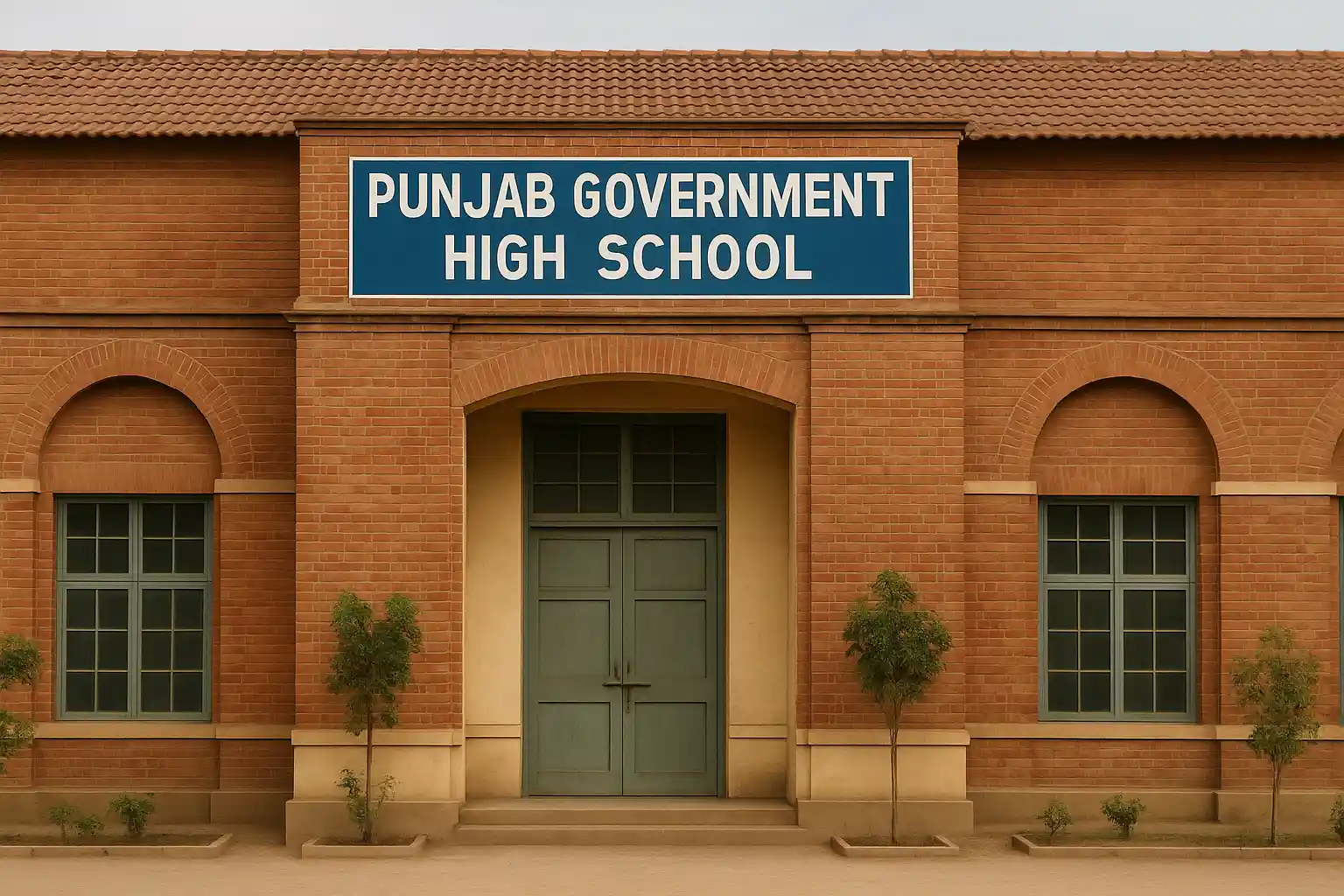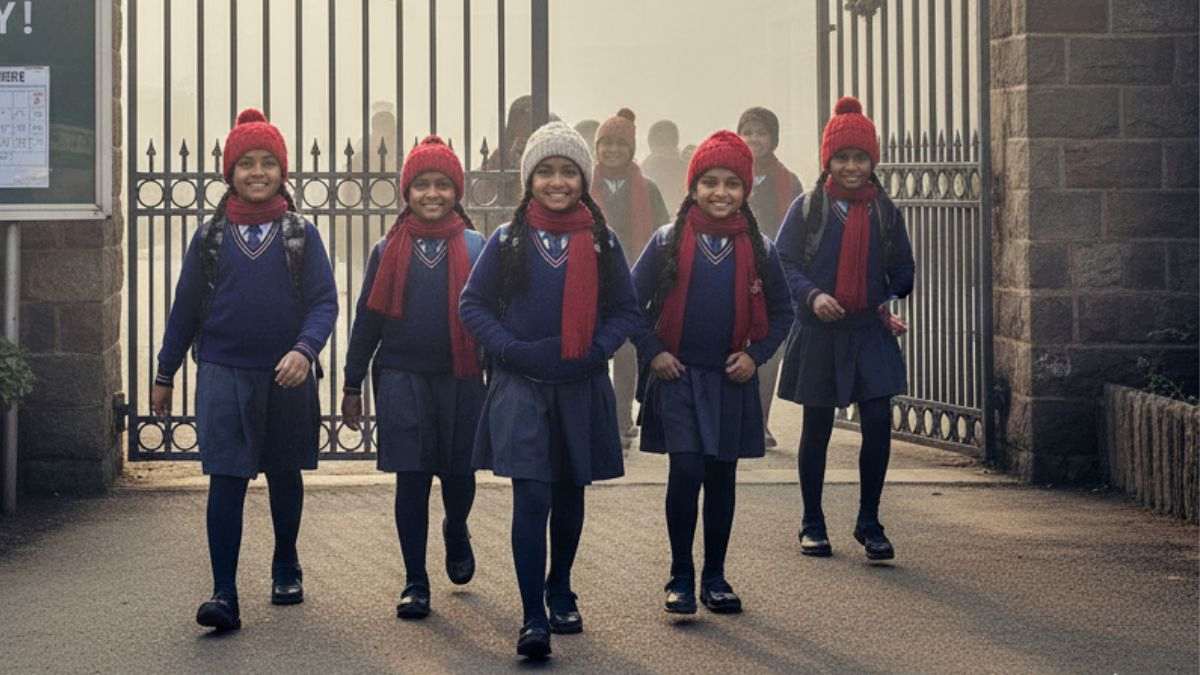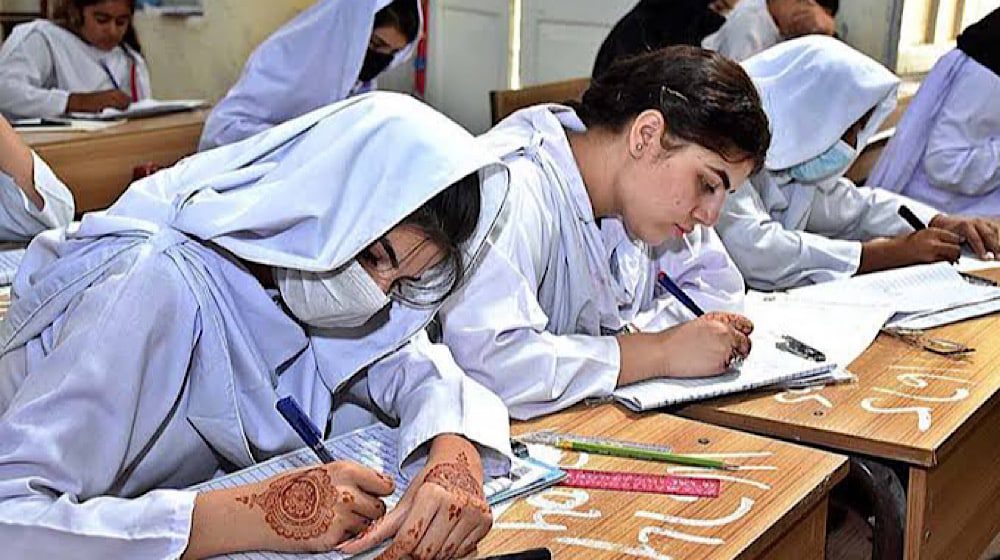The Punjab Education Department has announced that it will begin the third phase of its schools privatization program in December, marking another major shift in the province education policy. This new phase of privatization is one of the largest expansions of the initiative to date and has become a major topic of debate among teachers, educators, parents, and policymakers.
The Punjab Education Department plans to hand over 4,500 government schools to private organizations in the coming months. These schools include primary, middle and for the first time, high schools as well. The school privatization program has already transferred 12,500 schools in previous phases. This means that the total number of privatized institutions in Punjab will cross 17,000 after the new phase.
The Punjab government has stated that the purpose of this step is to improve school performance, ensure better management and raise the academic standards of institutions currently facing challenges. Officials claim that many of these schools have low enrollment, lack basic facilities and require better leadership and accountability.
The third phase of the school privatization programme is being presented as a solution to revive struggling schools and reduce the burden on the government. However, despite these explanations the policy has sparked intense criticism across Punjab especially from teachers associations and educational stakeholders who fear the negative effects on public education.
4,500 More Schools to Be Privatized Under New Policy
The Punjab Education Department will transfer all schools with 100 or fewer enrolled students to private operators under the new criteria. The Punjab Education Department has instructed education officers in all districts to finalize and submit updated lists of such schools so that the privatization process can officially begin in December.
Expansion Now Includes High Schools
The new policy has widened the scope of the school privatization program, as it now includes high schools along with primary and middle schools. This is the first time that secondary level institutions will be moved to private management. This decision is seen as a turning point in the province’s policy direction because high schools have a significant influence on students’ academic careers.
Government Justifies Privatization for Efficiency
The government argues that schools with low student numbers are difficult to justify financially. Many institutions do not have enough attendance to justify the teaching staff, operational costs and infrastructure maintenance. Officials believe that private management will lead to a more efficient system where performance-based standards and accountability mechanisms can deliver better educational outcomes.
According to this line of thinking, the school privatization program can enhance student performance, strengthen monitoring and create a more result-oriented education environment. However, critics of the initiative have a completely different outlook. Teachers and education activists insist that the low enrollment in many schools is the direct result of insufficient government investment rather than weak performance by teachers or school leaders.
They believe that if the Punjab Education Department invested in better buildings, availability of teachers, essential learning facilities and community engagement programs, enrollment would increase naturally. From their perspective, the school privatization program is an attempt to reduce government spending rather than improve educational standards.
Reassignment or Transfer of Teachers to the Extra Group
One of the most contested aspects of the third phase of school privatization is the decision regarding teachers posted in the affected institutions. The government will reassign many teachers to nearby government schools or place them in a surplus pool, where they may have to wait for new postings.
Teachers in Punjab are generally anxious as a result of this. Many educators worry that abrupt relocations will disrupt their personal lives, service records, and career stability. Teachers who have worked for years in difficult or remote locations believe that the government is punishing them for issues beyond their control.
The worry that an excess pool will turn into a waiting list with no assurances of placements is another issue. Teachers are concerned that they might go months without receiving the right assignments which would hinder their ability to advance professionally and maintain their financial security.
Instead of outsourcing schools teachers suggest that the Punjab Education Department should recruit missing staff, improve infrastructure. It provide modern teaching resources so that government schools become strong enough to compete on their own.
Teacher Unions Strongly Oppose Privatization Move
Teacher unions across Punjab have strongly opposed the government decision to launch the new phase of the school privatization program, with leaders such as Rana Liaqat, Muhammad Shafiq Bhalowalia and Busharat Iqbal Raja jointly condemning the move and demanding its cancellation.
They argue that transferring schools and reorganizing staff will harm teachers and students, particularly those from low-income families, and create administrative confusion. According to union representatives students may face a shortage of experienced teachers and new management teams may struggle to understand institutional needs.
- Possible negative effects on teachers and students
- Risk of administrative disruption during transfers
- Shortage of experienced teachers in affected schools
- Privatization seen as avoiding real systemic issues
- Increased private involvement in a sector meant for public benefit
Concerns Over Increased Fees and Weakening Public Education
Concerns regarding potential fee increases after schools are turned over to private operators have been voiced by educators, parents and education experts. Basic educational costs, such as uniforms, books, school supplies and transportation are already beyond the means of many Punjabi families. They worry that children from low income families will have less access to education as a result of increased school fees.
Critics argue that private operators may create a system in which only those who can afford private expenses receive quality education, leaving others behind. Another growing concern is the long term weakening of public education. The government school system in Punjab serves millions of students many of whom rely on it because their families cannot afford alternative options.
By shifting a large number of schools to private organizations critics believe the government may be reducing its commitment to strengthening state funded education. Some activists warn that if this trend continues public schools may lose relevance altogether leading to a two tier system where the wealthy and middle classes receive better opportunities while the poor struggle with limited choices.
They worry that private operators may prioritize financial performance or visible results over deeper educational development. From their point of view, the government should not treat education as a business or a market product driven by competition. Instead, they believe the government should take full responsibility for improving the system and ensuring that public education remains strong and accessible.
Government Stands Firm Despite Criticism
Despite strong criticism the government remains firm on continuing the school privatization program stating that earlier phases have shown positive results in student performance, attendance and monitoring, with private operators bringing modern management and teaching methods that government schools struggle to adopt.
Officials argue that private management can revive many underutilized schools with low enrollment and improve efficiency to make the education system more competitive, even though teachers and unions strongly disagree.
Government’s Justification
- Previous phases showed improved results
- Better management and modern teaching methods
- Underutilized schools can be revived
- Policy aims to boost efficiency and competitiveness
About Parhlo Pakistan
Parhlo Pakistan is a rapidly expanding digital platform committed to providing timely news, educational updates, student resources, academic advancements and educational articles from all over the nation. By offering trustworthy information the website seeks to assist educators, parents and students. For millions of readers, Parhlo Pakistan remains a source of information that keeps them informed about the most recent advancements in education.
The Road Ahead
As the province prepares to begin the third phase of its school privatization program in December, the debate over Punjab educational future is becoming more contentious. The government attempt to improve management and fortify underperforming institutions is reflected in this policy program. However, it poses a threat to equitable access to education or job security and public education according to educators and education activists.
It will be evident in the upcoming months whether the Punjab Education Department is able to resolve the issues brought up by parents and unions or if mounting pressure will compel policy changes. The decisions made during this stage of the school privatization program will undoubtedly determine the future of thousands of schools, educators and students.




